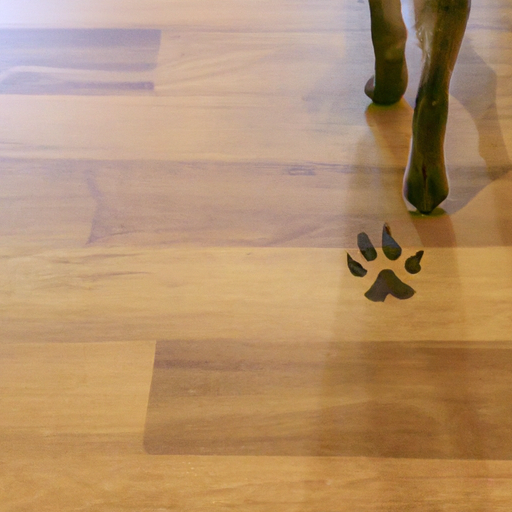As a caring owner, you are undoubtedly always on the lookout for the best ways to ensure your pet’s comfort and safety. One aspect you might not have considered is flooring. Yes, the type of flooring in your home can have a profound impact on your furry friend’s well-being. Let’s dive in and explore the best flooring options for dogs.
1. Understanding Your Dog’s Needs
Before we delve into the specific types of flooring, it’s important to understand your dog’s needs. Factors such as your dog’s age, size, breed, and any potential health complications can affect what kind of flooring is best for them.
- Age and Size: Larger dogs and older dogs may require softer, more cushioned flooring to alleviate joint pressure.
- Breed: Some breeds, like greyhounds or bulldogs, have short, thin coats and sensitive skin. They might prefer carpeting or rugs for the extra warmth.
- Health: Dogs with health issues like arthritis or hip dysplasia would benefit from a soft, non-slip surface to walk on.
2. Pros and Cons of Different Flooring Types
There are several types of flooring options, and each has its advantages and disadvantages when it comes to dogs.
| Flooring Type | Pros | Cons |
|---|---|---|
| Hardwood | Easy to clean; Elegant look | Can scratch easily; Slippery for dogs |
| Laminate | Scratch-resistant; Affordable | Can be slippery; Loud for dog nails |
| Carpet | Soft and comfortable; Non-slip | Hard to clean; Can trap pet dander |
| Vinyl | Affordable; Scratch and stain-resistant | Can be punctured by dog nails; Chemicals in vinyl may not be safe for pets |
| Tile | Easy to clean; Durable | Cold and hard; Slippery when wet |
3. Safety and Comfort: The Best Flooring Options for Dogs
When considering the safety and comfort of your dog, it’s crucial to choose a flooring option that is non-slip, easy to clean, and comfortable for your dog to walk and lie down on.
- Vinyl: Vinyl flooring is a great option for its durability and ease of maintenance. It’s scratch and stain-resistant, making it a great choice for households with dogs.
- Laminate: While laminate can be a bit louder underfoot for dogs, it is scratch-resistant and easy to clean, making it a good option for dogs who tend to be a bit messier.
- Carpet: Carpeting provides a soft, warm surface for your dog to lie on. It also offers good traction for walking, reducing the chance of slips and falls.
4. The Importance of Regular Cleaning and Maintenance
No matter what type of flooring you choose, regular cleaning and maintenance are essential to keep your dog safe and healthy. Vacuum or sweep regularly to remove pet hair and dander, and clean up any spills or accidents immediately to prevent staining or damage. Regular nail trimming can also help prevent scratching on harder surfaces.
5. Making Your Decision
Choosing the right flooring for your dog is a personal decision that should take into account your dog’s needs, your home’s aesthetic, and your budget. It’s always a good idea to consult with a flooring professional or a vet for more personalized advice.
FAQ
Q: Can dogs slip on hardwood floors?
A: Yes, hardwood floors can be slippery for dogs, especially if they’re not properly maintained. Consider using area rugs or runners to provide more traction.
Q: Is carpeting a good choice for dogs with allergies?
A: Carpet can trap allergens, which can exacerbate allergies in both dogs and humans. Regular cleaning can help, but if allergies are severe, a hard surface flooring might be a better option.
Q: What about heated floors? Are they safe for dogs?
A: Heated floors can be a great way to keep your dog warm, especially in colder climates. However, it’s important to monitor the heat level to avoid overheating.
Q: How often should I clean my floors if I have a dog?
A: It’s recommended to clean your floors at least once a week, but it can depend on the type of flooring and how much your dog sheds or tracks dirt.
Q: Can I use regular floor cleaners if I have a dog?
A: Some floor cleaners contain chemicals that can be harmful to pets. Look for pet-friendly cleaners, or consider making your own with natural ingredients.



